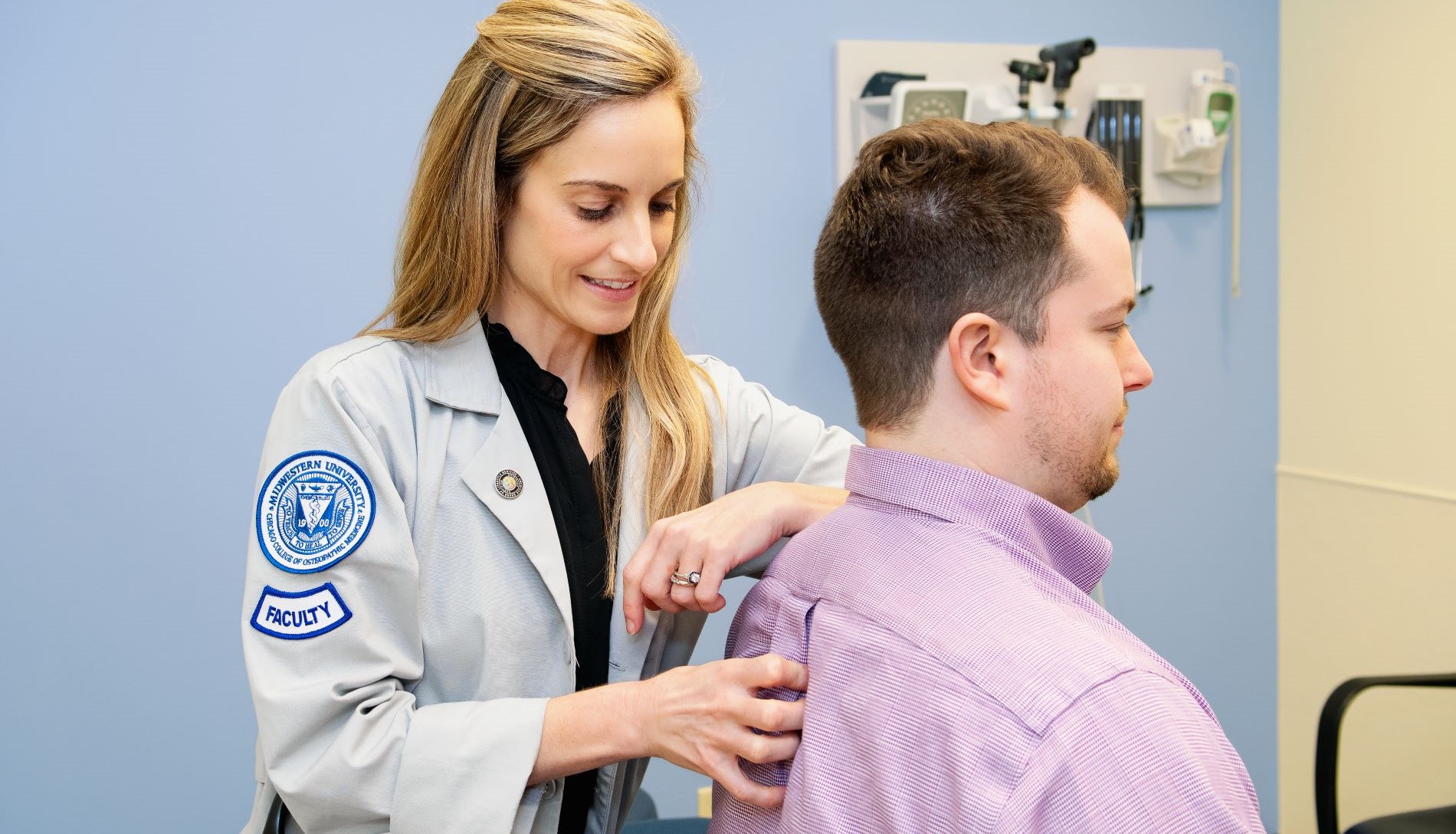The Midwestern University’s Family Practice Clinic offers a variety of healthcare services, including lifestyle medicine, to assist patients with a healthy lifestyle and increase their quality of life. In addition, medical students gain clinical experience and expertise working with patients coming in for lifestyle medicine services, and some can choose to specialize in the field. Kimberly McKinnon, D.O., Family Medicine, Lifestyle Medicine, Clinical Assistant Professor, Osteopathic Manipulative Medicine (OMM), Chicago College of Osteopathic Medicine (CCOM), shared insights into the field of lifestyle medicine. “Midwestern University provides robust support for lifestyle medicine through its Multispecialty Clinic. By fostering a collaborative and preventative care model, the clinic enables patients to explore and adopt healthier lifestyles with the guidance of skilled professionals,” Dr. McKinnon said.
The central aspect of lifestyle medicine emphasizes changes to prevent, treat, and possibly reverse chronic conditions that patients may face, Dr. McKinnon stated. “By addressing key behaviors—such as diet, exercise, sleep, and stress management, we create individualized care plans that help patients reach their goals and improve their quality of life.”
“As a Lifestyle Medicine Diplomate since 2019, I specialize in helping patients optimize their health through evidence-based practices. Lifestyle medicine isn’t just an addition to care, it’s a framework that guides how I approach every patient visit. Whether it’s preventing heart disease, managing diabetes, or addressing obesity, my goal is to empower patients to take charge of their health and make lasting, meaningful changes,” Dr. McKinnon discussed.
Lifestyle medicine is comprised of six pillars: physical activity, managing stress, getting enough hours of sleep, proper nutrition, socialization, and stepping away from risky substances. Patients may feel overwhelmed at the thought of adding these changes to their lives, and Dr. McKinnon advised them to start small. “Tackle one pillar at a time, making gradual changes that feel achievable. Even small steps, like adding a short walk to your day or focusing on a better bedtime routine, can create significant improvements over time. Consistency is more important than perfection,” she said. Dr. McKinnon added, “Lifestyle medicine is highly personalized — it’s not about following a rigid checklist but about finding what works for you. The six pillars provide a framework, but the journey is yours to shape. Even small, incremental changes can create a ripple effect that transforms your health and your life. The key is to start, no matter how small the step.”
One of the most challenging aspects of incorporating lifestyle changes is overcoming personal barriers such as motivation, time, and frustration if the progress is not going as fast as the patient would like, Dr. McKinnon described. “My role is to help them navigate these obstacles. I act as a coach and a partner, taking the time to listen and understand their unique circumstances. Together, we map out strategies to keep them moving forward,” she described. Dr. McKinnon emphasized that one of the most rewarding aspects of her work is seeing someone overcome their obstacles and achieve their goals.
The incorporation of a proper diet is a common struggle, and the first step patients can take is to understand their food intake and the ways it aligns with their goals, Dr. McKinnon said. She shared that nutrition is deeply personal whether it is utilized for weight loss, managing diabetes, building healthy muscles, or another reason. She discussed practical strategies for practicing good nutrition on a budget. “Shopping at affordable grocery stores and meal prepping can save time and money. Plan to cook meals that can stretch over a few days, and try to limit eating out. Small adjustments like these can make healthy eating both attainable and sustainable,” Dr. McKinnon added.
Finding time to exercise is another challenge that patients with busy schedules face. “Exercise doesn’t have to mean spending hours at the gym. Simple activities like taking the stairs instead of the elevator, parking farther away, or incorporating short walks into your routine—are excellent starting points. Remember, movement isn’t about perfection; it’s about progress, even if it’s just 10 minutes a day.” She also said that patients who prefer structured workouts, such as weightlifting or resistance training, can perform these exercises at any time of the day.
Dr. McKinnon also shared important advice for patients who are working to incorporate lifestyle medicine. “Changing your lifestyle is a process, not a quick fix. It takes patience, persistence, and a willingness to celebrate small victories along the way. Setbacks will happen, but they’re just part of the journey. Staying focused on your goals and giving yourself grace during the tougher moments will help you succeed.”


